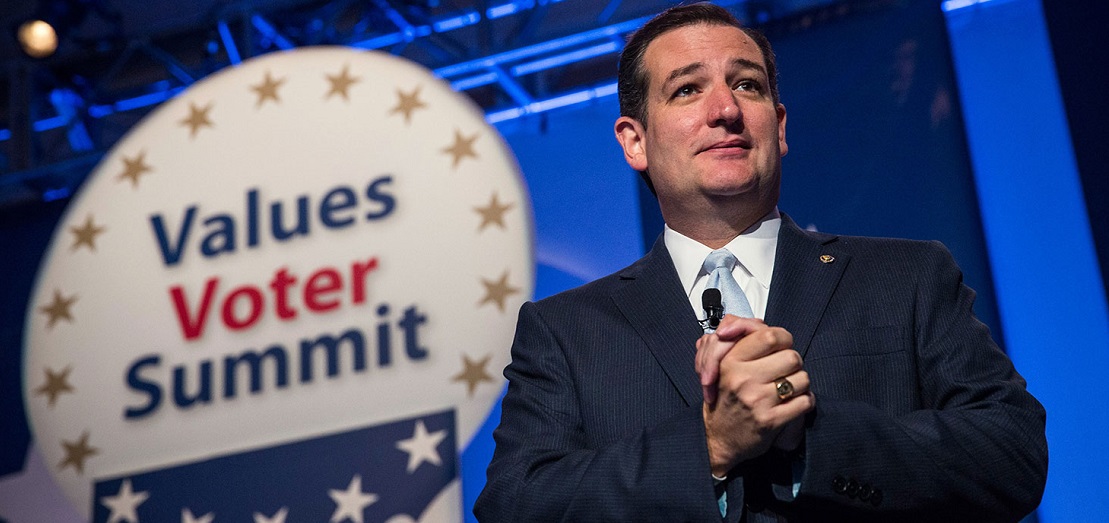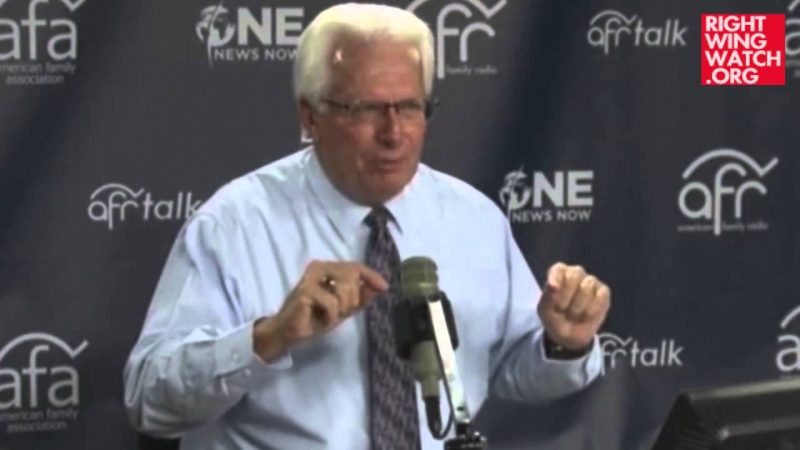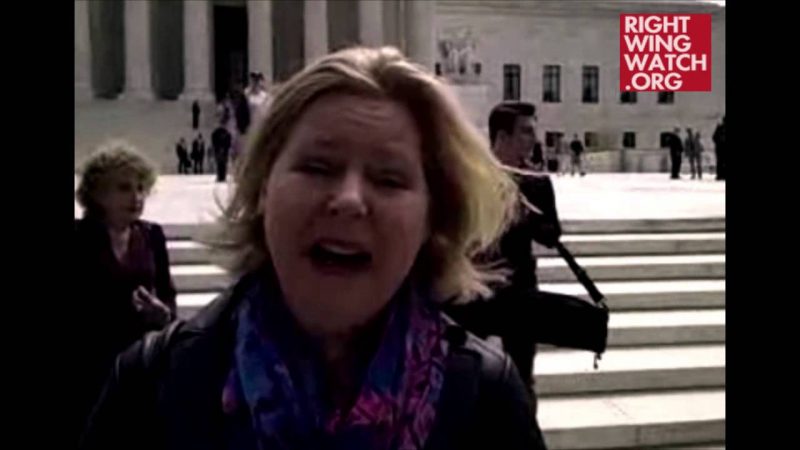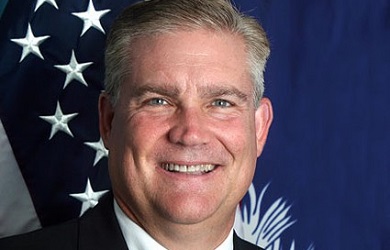Religious Right groups are celebrating yesterday’s Supreme Court ruling upholding sectarian prayer at official public meetings – like city council sessions – and narrowly defining what would amount to unconstitutional religious coercion of people attending. The case is Town of Greece v. Galloway.
Though divided on their reasoning, the Court’s five conservative Justices upheld a practice in which, month after month, year after year, town leaders reached out to Christians and Christians only to offer opening prayers at town meetings, prayers that were often quite sectarian in nature. The very few exceptions were in response to this lawsuit. Although town leaders said that members of other religions could lead the opening prayer if they asked to, they had hardly let that be widely known, and they continued to reach out only to Christians.
SCOTUSblog’s Lyle Denniston characterized the Court’s ruling as “[s]topping just short of abandoning a historic barrier to religion in government activity.” Conservative and religious groups hostile to church-state separation are gushing over the ruling and hope it is a sign of more to come.
The Becket Fund signaled that it hopes yesterday’s decision will just be the first step in further dismantling rulings upholding church-state separation. From Deputy General Counsel Eric Rassbach:
“The Court’s landmark decision today echoes the wisdom of the Founders. Not only did the Court uphold the centuries-old practice of legislative prayer, it also started the work of bringing the entire law of church and state onto a firmer foundation in the words of the Constitution.”
David Corman, senior counsel for the Alliance Defending Freedom, which represented the Town of Greece:
“Opening public meetings with prayer is a cherished freedom that the authors of the Constitution themselves practiced,” he said. “Speech censors should have no power to silence volunteers who pray for their communities just as the Founders did.”
The American Family Association’s Bryan Fischer celebrated the ruling as a “monster win” and said it was proof that “we are fighting a winnable war,” because the “Supreme Court has ruled that you can have sectarian prayers, prayers in the name of Jesus Christ, to open any legislative session, any lawmaking body – a county commission can do it, a city council can do it, a state government can do it.”
Fischer he went on at great length endorsing Justice Clarence Thomas’s position that the First Amendment does not limit states’ constitutional right to, for example, declare the Southern Baptist Church to be the official state church and force people to support the church with taxes. Fischer, in fact, called Thomas “a stud on the issue of religious liberty.” (Fischer says he wouldn’t personally support coercive state establishment, but he supports Thomas’s constitutional analysis, and says it should be applied to interpret that the federal government has no right to tell public schools whether and how prayer is permitted.) Fischer is delighted that the Supreme Court’s majority decision discussed the fact that the Continental Congress opened with “emphatically Christian” prayer.
Hallelujah! Today YOU helped score a VICTORY at the U.S. Supreme Court, reaching the pinnacle of seven years of work and prayer with The Pray In Jesus Name Project.
The U.S. Supreme Court ruled 5-4 that it’s OK for pastors to pray “in Jesus’ name” at city council meetings.
Family Research Council’s Tony Perkins:
“The court today has upheld our first and most fundamental freedom. The court has rejected the idea that as citizens we must check our faith at the entrance to the public square. We applaud the majority on the court for getting that right. This is an historic victory for all Americans of faith and for the common-sense reading of the Constitution itself. The Court’s affirmation of the right of Americans to practice their faith in public life and the public square is a major win for the religious liberty we have always cherished.”
Ralph Reed of the Faith and Freedom Coalition called it a victory that would empower Religious Right activists to push elected officials to bring sectarian prayer into more official settings:
Reed also announced that, armed with today’s Supreme Court decision, Faith & Freedom Coalition would redouble its efforts to encourage opportunities for prayers offered at meetings by town boards, city councils, and county commissions nationwide. The organization has in the past mobilized public support for local officials who have allowed such prayers at government meetings.
“Speech honoring God and invoking His blessing on our land should be welcomed, not treated with hostility,” said Reed. “With today’s decision, the government officials that faith-based voters help to elect can provide a forum for such expressions without fear of being reversed by future courts.”
Concerned Women for America celebrated, saying the decision “lifts up the best in our country.” CWA President Penny Nance managed to slam what she said has been “a push to establish atheism as the official religion of our land” and claim that the Supreme Court’s ruling was a win for everyone, “even the staunchest atheists.”
Those who object to these practices do not seek to exercise their religious liberty; they merely feel hostile towards other people’s religious practices and seek to silence them. They seek to silence those with whom they disagree….
The Founders of this great nation benefited and relied heavily on prayer to seek the guidance they needed to establish the foundations of our nation. When the first Congress met on September 7, 1774, it began with an amazing prayer “in the name and through the merits of Jesus Christ, Thy Son and our Savior.” No religious oppression or favoritism followed from that practice, only the blessings of freedom and liberty, including the freedom of religious thought, belief, or even non-belief.
Everyone wins, including the staunchest atheists, when we allow the free exercise of religion or non-religion according to a person’s conscience.
Fox News pundit Todd Starnes, who specializes in promoting fictitious threats to religious freedom, declared that “the Obama administration has been waging a war against people of the Christian faith,” somehow neglecting to mention that the Obama administration had actually weighed in on the side of the Town of Greece and its overwhelmingly Christian prayers. Starnes said it is “always a good day when the anti-Christian folks get smacked down by the Supreme Court” but said the fact that it was a 5-4 decision should be a “wake-up call” for Americans that elections matter.
Gary Bauer made the same point:
Here’s the good news: The Supreme Court today upheld public prayers, even Christian prayers, at government meetings in 5-to-4 decision.
But that is the bad news too! The free exercise of religion depends on just one vote….
Now a win is a win. But don’t miss the fact that this victory for religious liberty was won by the narrowest of margins. One more liberal appointment and the Supreme Court could easily ban prayers before town council meetings and legislative sessions. If that were to happen, our Pledge of Allegiance and the national motto would surely be next.
Your vote at the ballot box has a direct impact on our federal courts. Federal judges, including those on the Supreme Court, are appointed (by the president) and confirmed (by the Senate) by the men and women we elect to public office.








